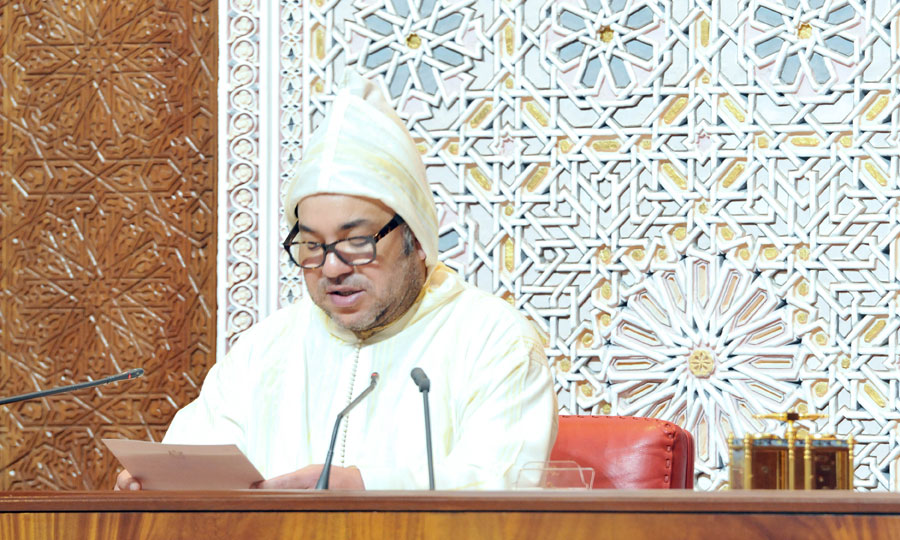
 King Mohammed VI on Friday drew a rather bleak picture of the Moroccan administration and state agencies, which suffer, he said, from several shortcomings, including weak performance and poor quality services to citizens, despite an inflated workforce.
King Mohammed VI on Friday drew a rather bleak picture of the Moroccan administration and state agencies, which suffer, he said, from several shortcomings, including weak performance and poor quality services to citizens, despite an inflated workforce.
He called on the Moroccan administrations and institutions to streamline their services, to simplify procedures and to make sure that they are always accessible and available to the citizens.
“Therefore, I urge everyone – the Government, Parliament, political parties, trade unions, civil society organizations and civil servants – to commit to a keen sense of national responsibility in order to come up with real solutions so as to enhance the performance of state agencies and to improve the quality of the services offered to the citizens,” the King said in a speech he delivered on Friday before members of the Parliament’s two houses, on the occasion of the opening of the legislative year.
“The goal all institutions should strive to attain is to serve the citizen. Should they fail in that mission, it would mean they serve no purpose and have, as a result, no raison d’être,” he said, underscoring the need to enhance the performance of administrative agencies and improve the services they provide.
“Managing the citizens’ affairs and serving their interests are both a national responsibility and a sacred trust, and in this regard there is no room for negligence or procrastination,” the Sovereign said, insisting that state agencies need to improve performance to keep up with the progress Morocco is making.
Among the shortcomings crippling State agencies, the sovereign also said “the civil service basically suffers from a longstanding culture which is widespread among most Moroccans, who think that the civil service is a refuge that guarantees them a monthly salary without having to account for performance.”
Yet, the goal of state agencies is to enable the citizen to obtain the services he needs in the best conditions and shortest time frame, to simplify procedures and to make sure that services are readily available to the citizens and that institutions are accessible to them, the King said, underlining the negative impact of poor quality services on citizens and on the country.
In this vein, the King gave the example of expropriation which sometimes harms citizens, saying that “expropriation should occur only in cases of absolute necessity and in the public interest, with immediate compensation, based on market prices applicable on the date of the transaction; procedures for the payment of compensation should also be simplified.”
He also mentioned investments as another field that can be badly affected by an inefficient administration. “There are still hurdles to investment, despite the creation of regional centers and the single window to simplify procedures and speed up the decision-making process,” he deplored, underlining that problems should be dealt with and files processed on the spot in order to ease administrative formalities for investors.
“I believe administrative efficiency contributes to promoting development and attracting domestic as well as foreign investment; it also enhances the trust enjoyed by Morocco,” the Sovereign pointed out, adding that when investors are turned down, “our country is deprived of opportunities for investment and development. And the citizens are denied employment opportunities.”
The Sovereign also urged state agencies to promote e-government services that should be offered across the board and in an integrated manner to ensure collective access to information by all sectors and services.
He likewise called these agencies to build on advanced regionalization, which has become a tangible reality, to make their services as well as decision-making centers readily available to the citizens.
“In this context, I insist on the need to develop and adopt an advanced administrative devolution charter that fits the requirements of the current situation, he stated, insisting that “everyone is responsible for ensuring the efficiency of state agencies and enhancing the quality of the services they provide because they are the backbone of any reform and are critically important for the achievement of the development and progress we want our loyal citizens to benefit from.”
